Unravelling the Intellectual Legacy: Ibn Khaldūn's Influence on Diverse Fields of Knowledge
Abstract
Ibn- i- Khaldun lived in Tunisia from 27 May 1332 to 17 March 1406, or 732 to 808 AH. He was a well- known scholar of Islam in Arab history. For his Muqaddimah( Prolegomena), he's most known. Ibn Khaldun is further than just a scholar and a counsel. He was a political scientist, sociologist, annalist, and champion. He's deified as the author of both sociology and history as a wisdom. Ibn Khaldun was a prominent thinker in political positions as well as having served in Tunisia's government. The political outlook of Khaldun Social Cohesion The Administrative Role in Asabiyyah. The religious outlook of Khaldun Muslim Law.
Introduction
He was one of those egotistical stars who made a significant donation to our understanding of civilization. Understanding a person's life is necessary for understanding and appreciating their work. He spent his entire life looking for security and power. He wanted to live up to both the prospects of his political and academic family and himself. Ibn Khaldun was a famed Muslim thinker who made significant contributions to the understanding of how religion, society, and the entire physical macrocosm are each intertwined. He also held a high political position, serving as Egypt's Prime Minister, and endured active military service. For his Muqaddimah ( Prolegomena), he's most known. This serves as his literary work's preface, and he describes the wisdom of society and civilization there.
This is his literary work's preface, in which he presents the wisdom of society and civilisation as a prelude to the study of history. He defined Islamic history as a cycle of renaissance and fall. One of the topmost minds in the world and a genius. This is his literary work's preface, in which he presents the wisdom of society and civilisation as a prelude to the study of history. He'd fare far better in the subject of Scholarship than in any other.
Ibn Khaldun wrote the work in 1377 as the prolusion and the first book of his planned work of world history, the Kitab al- ʿIbar(" Book of Assignments"; full title Kitābu l- ʻibari wa Dīwāni l- Mubtada' wal- Ḥabar fī ayāmi l- ʻarab wal- ʿajam wal- barbar, waman ʻĀsarahum min Dhawī sh- Shalṭāni l- Akbār, i.e." Book of Assignments, Record of onsets and Events in the history of the Arabs and strangers and Berbers and their important Contemporaries"), but formerly in his continuance it came regarded as an independent work on its own.
A brief description of his life
Ibn Khaldun belonged to a family of Arab nobles, as he noted in his autobiography, Al-Ta'rf bi Ibn Khaldun. His roots were in southern Arabia with his family. His family was grounded in southern Arabia. After that, they were sattale in Carmon of Spain in the early times of the Arab irruption. Her family ultimately relocated to Sevilla( Seville), where they laboriously shared in the 9th- century civil wars. In the following four countries, ibn khaldun held high executive and political positions under the Umayyad, Almoravid, and Almohad dynasties; other members of the family served in the army, and several were killed at the Battle of Al- Zallqah( 1086), which temporarily halted the Christian reconquest of Spain. still, 1248 showed that the deadlock was ineffective. Ibn Khaldun and the maturity of his countrymen believed it wise to take action just before the rendition of Cordoba and Sevilla. but therefore standstill proved in short in 1248. Just before the fall of cordoba and sevilla, ibn khaldun and maximum countryman judged it prudent to cross the woe of Gibraltar and landed at Sabtah( now Ceuta, a Spanish protectorate), on the northern seacoast of Morocco. ibn khaldun could not hold the high office for a long time because he fell. Thus he settled in cairo capital of egypt where ibn Khaldun was appointed to grand qazi And he failed in cairo in 1406.
Cultural Observations and Human Dynamics in Ibn Khaldun's Muqaddimah
As the ibn khaldun is known as the author of Muqaddimah( Prolegomena). In the 14th century In the book Muqaddimah he draws attention to a particular excrescence in the way his contemporary chroniclers write history. In the preface to al- Muqaddimah, he introduces the types of society and his review to determine the criteria by which chroniclers can duly judge Ibn Khaldun's social proposition. He said, on the one hand, the sociologist studies the present as well as observes the history; therefore history provides the material for sociology. Unlike earlier Muslim and Western chroniclers, he gave social history a distinctive status in a different perspective.
Several anthropological generalities are used in Ibn Khaldun's Prolegomenon. In addition to anthropology, the first brace, culture and tradition are of abecedarian significance to Ibn Khaldun's work. The other two, tradition and mortal phenotypic differences, have no critical significance for his proposition as a whole, but will be examined then for their wider applicability to the history of anthropological generalities.
Why write this book
clearly, Criticised the ultramodern critics to all side the history of ibn khaldun. ultramodern critics have approached Ibn Khaldun's history from different perspectives. Their argument is that Ibn Khaldun's history wasn't based on Al- Muqaddimah ( Prolegomenon) inner vision. According to them, although he inseminated new sanguinity in the anthology through his preface, the narrative of his history is rather discouraging in comparison.
In Al- Muqaddimah, Ibn Khaldun presented factual and critical compliances about the terrain, culture, and architectural achievements of the Arab Empire. It's doubtful for anyone to refute the probity of his assertions. Still, it was due to this that the Arab world replied negatively towards him. In Egypt, during his stay, a violent circle of hostility formed against him, primarily fueled by responses to his similar statements.
Khaldun's political thought:
Ibn Khaldun's political ideas: Ibn Khaldun, a 14th century Muslim historian, philosopher, and sociologist, also made major contributions to political theory. His political ideals, as stated in his The great book "The Muqaddimah" (The Introduction) has had a lasting effect on the discipline.Here are some significant components of Ibn Khaldun's political thought
Asabiyyah (Social Cohesion): Ibn Khaldun introduced the concept of "asabiyyah," which refers to the social cohesion and solidarity within a group or society. He argued that the rise and fall of dynasties and civilizations are influenced by the strength or weakness of asabiyyah. Strong asabiyyah leads to the establishment of a powerful state, while its decline leads to the disintegration of society.
Role of Leadership: Ibn Khaldun emphasised the crucial role of effective leadership in maintaining the stability and prosperity of a state. He highlighted the importance of a just ruler who upholds the rule of law, protects the rights of the people, and governs with wisdom and fairness. According to him, a strong and virtuous leader can help revive asabiyyah and delay the decline of a civilization.
Khaldun's religious thought:
Ibn Khaldun's religious thought played a significant role in shaping his worldview and understanding of society. As a Muslim scholar, his religious beliefs influenced his perspectives on various aspects of life and governance. Here are some key aspects of Ibn Khaldun's religious thought.
Islamic Law and Governance: Ibn Khaldun acknowledged the importance of Islamic law (sharīʿa) as a guiding principle for governance. He emphasised the need for rulers to adhere to the principles of justice and uphold the rights of the people as prescribed in Islamic teachings. He believed that a just ruler who governs according to Islamic principles would contribute to the stability and prosperity of society.
Role of Religion in Society: Ibn Khaldun recognized the significance of religion in fostering social order and providing a moral framework for society. He believed that religion plays a crucial role in guiding individuals and communities towards righteous behaviour and ethical conduct. He saw religion as a unifying force that helps establish social norms and values.
It is important to note that while Ibn Khaldun's religious thought influenced his perspectives, his writings also reflect a comprehensive approach that incorporates sociological, historical, and political analysis. He sought to understand the complex interplay between religious, social, and political factors in shaping human societies.
Conclusion:
Ibn Khaldun, a prominent medieval Islamic thinker, made significant contributions to history, sociology, political theory, and religious thinking. His writings, particularly "The Muqaddimah," have influenced intellectual discussions. He offered a critical and analytical method for understanding history, emphasizing social, economic, and cultural aspects. His political philosophy emphasized fairness, just governance, and conformity to Islamic norms. His religious beliefs shaped his worldview and social perception, emphasizing the importance of Islamic beliefs, moral principles, and divine providence in personal and communal life. His multidisciplinary approach, combining history, sociology, politics, and religion, continues to inspire researchers and inform modern academic and intellectual circles.
Reference
1- https://www.newworldencyclopedia.org/entry/Ibn_Khaldun
2- https://www.bartleby.com/essay/Contribution-Of-Ibn-Khaldun-PCEU8CU3G6
3- https://m.somewhereinblog.net/mobile/blog/dianacuctg/29694682
4- https://www.berose.fr/article1777.html
5- https://www.britannica.com/topic/Battle-of-al-Zallaqah
6- https://www.tighs.com/education/achievements-awards/faculty-of-humanities/
7- https://en.islamonweb.net/ahmad-sirhindi-a-spiritual-revivalist-of-islamic-thought
8- https://academickids.com/encyclopedia/index.php/Ibn_Khaldun
9- Masudul Hasan. History of Islam. Adam Publishers & Distributors, 2009.
10- Irwin, Robert. IBN KHALDUN : An Intellectual Biography. Princeton Univ Press, 2019.
11- Allen James Fromherz. Ibn Khaldun : Life and Times. Edinburgh University Press, 2011.
12- Mohammad Abdullah Enan. Ibn Khaldūn : His Life and Works. Other Press Sdn Bhd, 2007.
13- Lacoste, Yves. Ibn Khaldun. 1984. Translated by David Macey
About the author
Alamin Sk is a senior secondary final year student of Darul Huda Islamic University,West Bengal Campus. He is interested in history, current muslim world, Islamic theology, Ṣūfism and Islamic history. Social worker in social media.
Disclaimer
The views expressed in this article are the author’s own and do not necessarily mirror Islamonweb’s editorial stance.

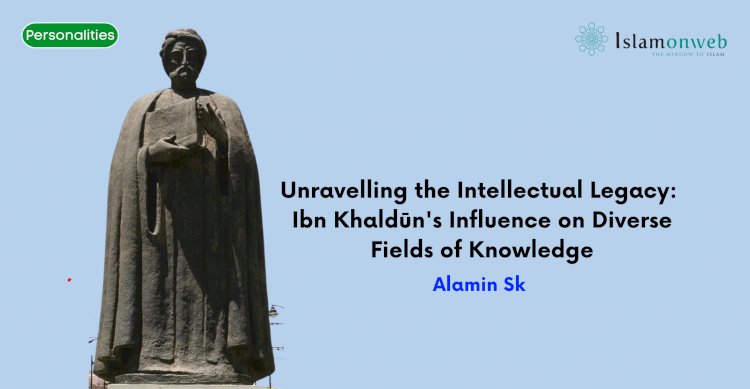


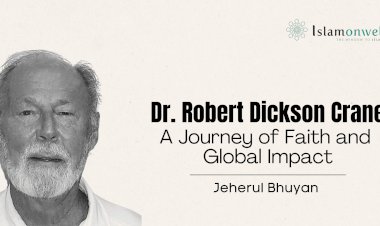
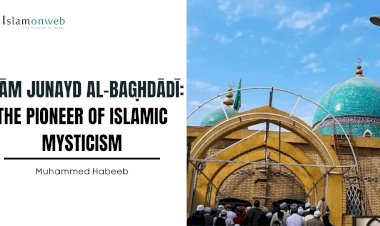
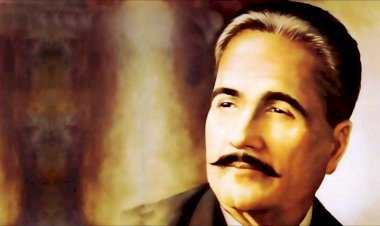

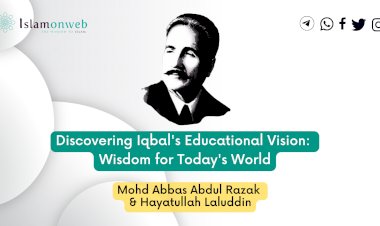
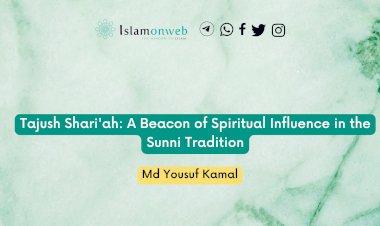














Leave A Comment